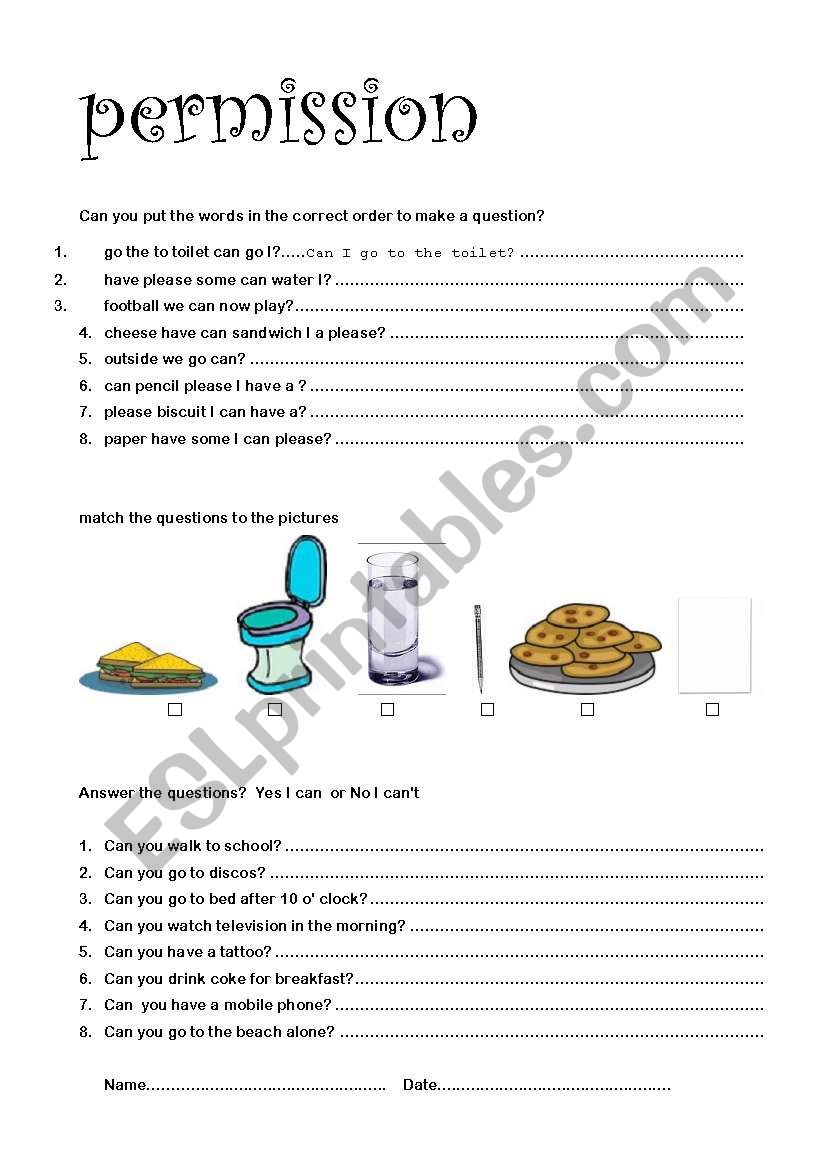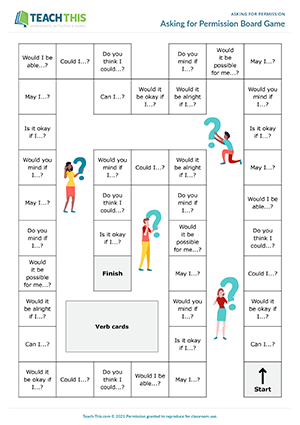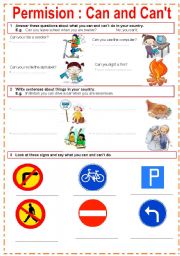Can for permission esl

The first three are more informal, while the fourth is formal. In this fun asking permission activity, students learn how to ask for, give and refuse permission. Divide the students into two equal groups (A and B) and give each student a corresponding card. What are some examples of permission?
Do you need permission to do something? Complete with CAN or CAN´T, complete with a short answer, match the sentences and the pictures, ask questions. I don´t know why the writing in the top right box is white, it´s black on the original. Can we go home now?
ESL Making Request and Suggestions Activity - Writing, Listening and Speaking - Pre-intermediate (A2) - minutes In this requests and suggestions activity, students plan and organize a class party by making, accepting and refusing requests and suggestions. I’ve finished my homework.

English as a Second Language ( ESL ) Expert. Permission : Modal verbs like “ can, ” “could” and “may” are all used for giving or asking for permission.
Prohibition: They can be used in the opposite way too. Could I speak to Amy, please? Learning to ask questions using "may" and " can. How to talk about ability using " can "?
You can leave early today. One of those is to talk about general ability.

This is something that you have learned in the past and you can now do at any time you want, such as being able to ride a bike, swim or play a musical instrument. Students can travel for free. We often use can to ask for and give permission.
We also use could to ask for permission (but not to give it). Whether or not you should ask for permission this way depends on the situation and your relationship with the person that you are asking. If you are in a business setting with your boss, it is often better to avoid this way of asking for permission because it shows that you are too timid. However, it is a good way to ask for advice from a friend.
We use can to ask for permisson to do things. Giving and refusing permission 1. Refusing permission. Downloadable worksheets. May I have another cup of tea? Wait until the water is hot. I don’t have a problem with your doing it. Note that we also use coul may, might for permission. The use of can for permission is informal. They are a type of auxiliary verb we use with other verbs to add more meaning to the verb.
These words and phrases can be displayed on your classroom walls as reminders for students. To express ability. I can speak two languages. The topic of this worksheet is talents.
The worksheet also presents link words such as "an too, but" and it also provides plenty of speaking practice as well as reading.
Yorumlar
Yorum Gönder